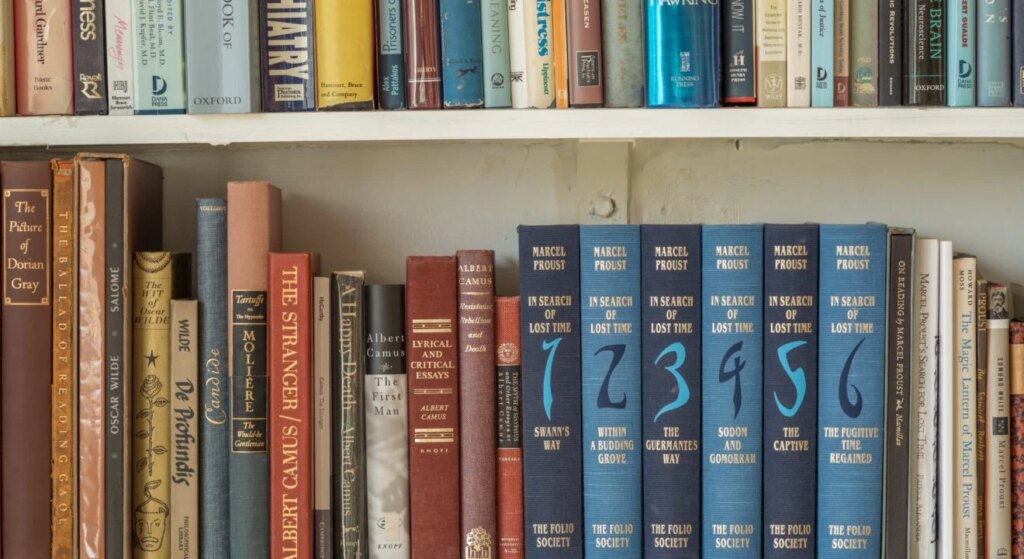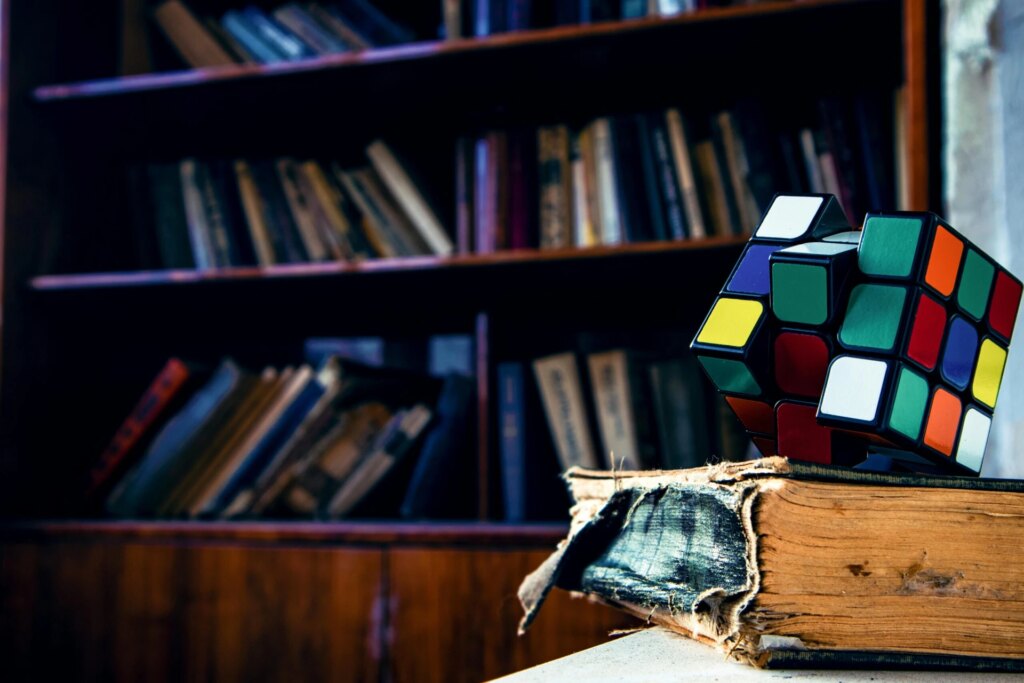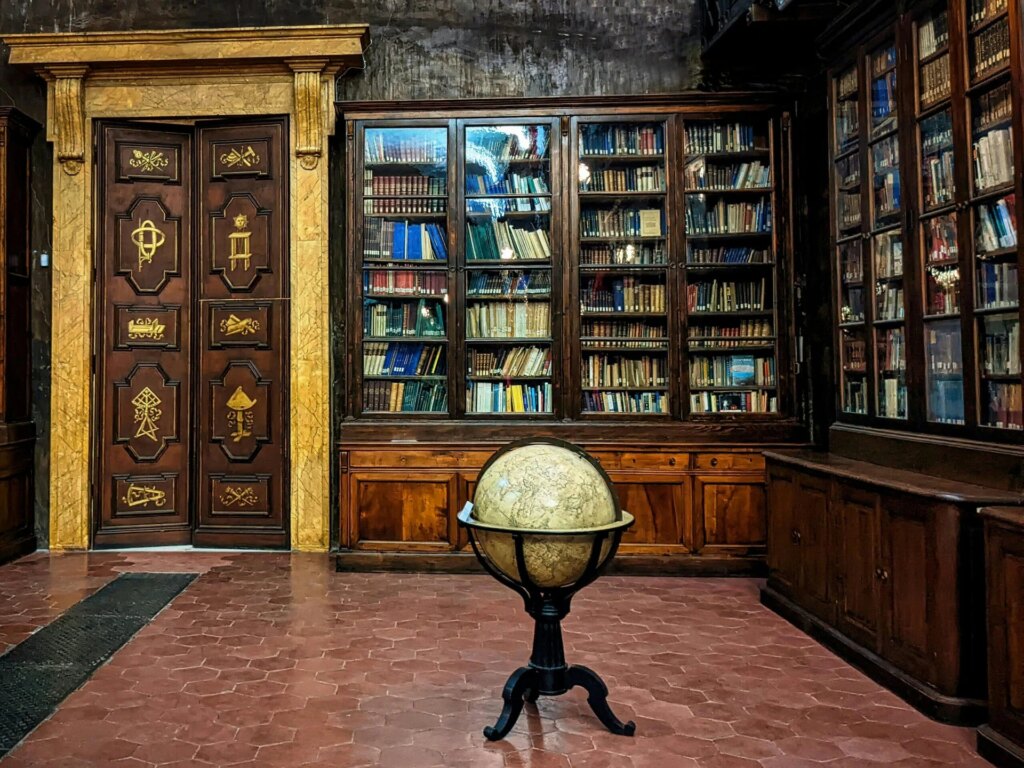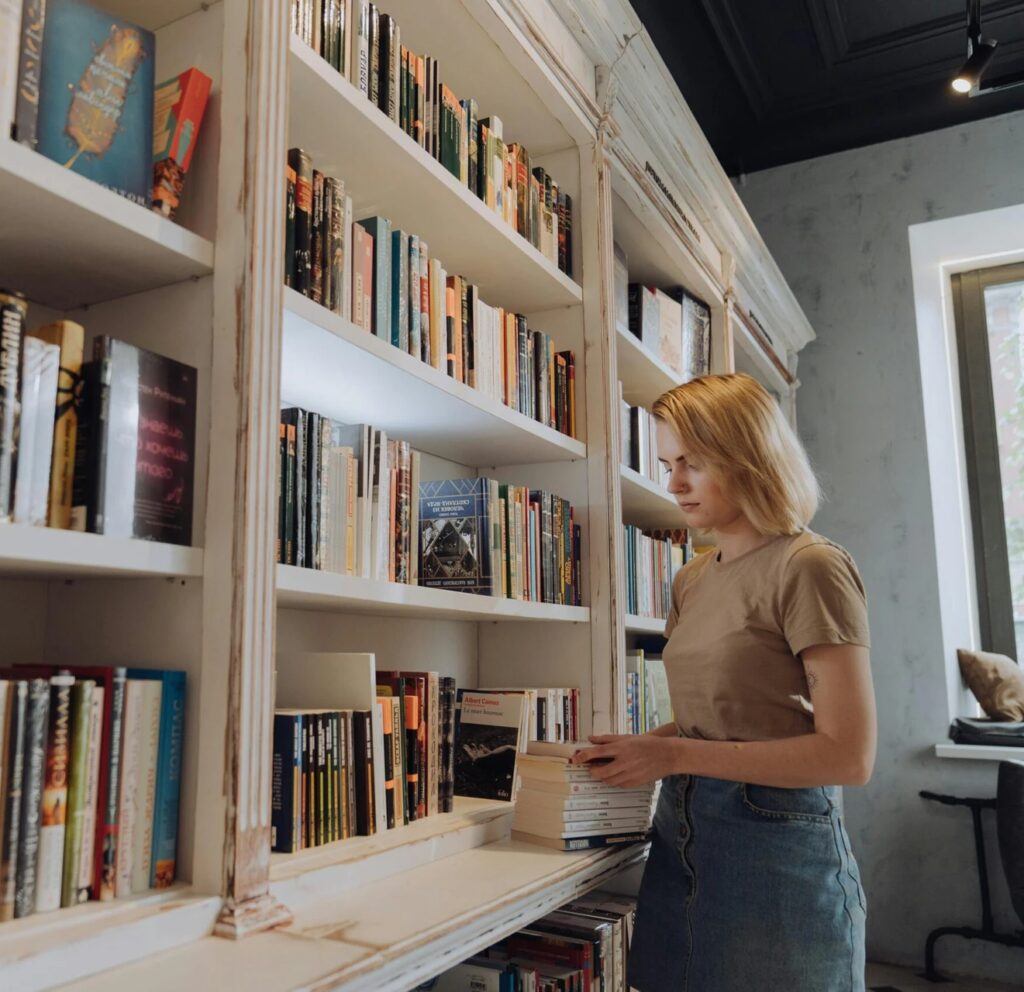Tsundoku refers to buying books that you mean to read, but don’t get around to. Let’s take a look at some possible benefits to that unread collection.
We don’t always get around to the stack of books we hoped to read; and the word for that is tsundoku.
Tsundoku: Collecting Books You Don’t End Up Reading
Tsundoku is a Japanese compound word of tsumu, meaning “to pile up,” and doku, meaning “reading.” It’s not quite right to translate it into “book collecting,” as it’s more than that. It specifically insinuates the intention to read the books you buy; you just never get around to it.
Having an ever-growing reading list is a phenomenon that many book lovers are likely familiar with. After all, for every volume you read and check off that list, all too often you end up adding five or ten more.

The real question is whether it’s a good habit or a bad one. In Japanese, tsundoku is a fairly neutral term. Unlike bibliomania, it’s not an obsession with collecting or hoarding books. Sure, it can be used to poke fun at those who own a ton of unread books. But it can also be a way to shrug and say, yeah… there’s never enough time to do anything.
Why We Pile Up Books
There are many reasons why someone would add books to their collection without reading them. One is vanity. In the past, particularly in the 19th century, having a personal library was seen as a status symbol, and the more extensive your library, the more prestige you got.
Even nowadays, owning a lot of books can make you seem intelligent to others, even if you’ve never cracked open a single spine. This is different from tsundoku, though, since anyone collecting books for vanity isn’t planning to read them. The same goes for those who hunt down specific authors or titles because they find the search itself exciting, or those who target rare books for their monetary value.

When it comes to tsundoku, the reasons narrow down a bit. Specific books can have sentimental value, or be reminders of important milestones. Other times, collecting can be a way to connect with others who love books, or a way to establish a sense of self.
But many times, it’s done for the love of books: to improve yourself, to expand your knowledge, or to provide entertainment. And while this category will certainly try to read every book they buy, it’s all too easy to overestimate the amount of time one has. You can think of it like how a restaurant-goer might want to sample everything on the menu, but doesn’t have room in their stomach to do so.
Unread Books as Potential Knowledge
While it would be easy to dismiss someone’s shelf of unread books as pointless clutter, there’s more to it than that. In his book Black Swan, Nassim Nicholas Taleb argued that often, those unread books represent the desire to challenge oneself to read and learn more. Perhaps more importantly, they also serve as a reminder of what we don’t know.

It’s far too easy to become pretentious or egotistical if you fancy yourself an intellectual. And as mentioned, while some people expand their personal libraries specifically to impress others, those who gather that collection with the specific intention of reading it are more likely to feel humbled by what they haven’t read.
The same is true for anyone walking into a new field of knowledge. Most beginners, after learning a few of the basics, feel quite confident in their abilities. However, the more a person learns, the more they realize how much they don’t know. It can be daunting; but in its best light, it’s a reason to be humble and grateful for what we have learned, and what we have yet to learn.
Some Unsung Benefits of Book Collecting
Whether you view that stack of books as a wealth of potential knowledge, a nostalgic passtime, or a simple source of joy, book collecting has a lot of hidden benefits. Social Science Research published a study that found higher rates of literacy, numeracy, and information tech-savviness for those who grew up in households with more books.

Moreover, whether you read books or not, they’re undeniably sources of knowledge, but they’re fragile. Books need someone to preserve and maintain them. If they’re just floating about in the world, they can be easily damaged and lost to time.
But when amassed in a collection—whether that be a public library or someone’s personal stash of books—there’s a much better chance of them being preserved and cared for. Libraries of the past teach us so much about history; about how people felt and how they interpreted historical events. Even someone’s personal diary can offer an important perspective to future generations and show us what the general public knew of historic events—not just key political figures.
Even if most people’s collections in the modern day won’t have much historic significance, the fact that they enrich our lives makes them precious. Even if we don’t always get around to reading every last volume, having a pile of books on stand-by is sure to come in handy.
Join our community of 1.5M readers
Like this story? You'll love our free weekly magazine.








